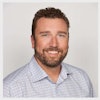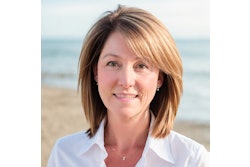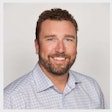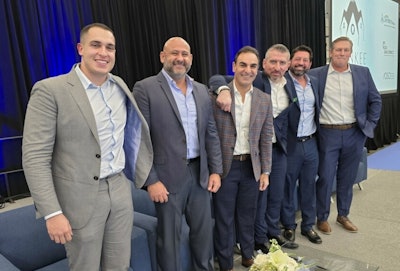 From left to right: Amir Moghaddam, co-founder of DDS Marketing; Dr. Tarek Aly, MBA, partner, Modern Smiles Dental Group and Community Dental Partners; Dr. Hisham Barakat, partner and chief clinical officer at Guardian Dentistry Partners; Josh Gwinn, co-founder and CEO of Optimize Practice Alliance; Nabil Fehmi, co-founder and chief operating officer of Westwind Integrated Health (moderator of the panel); Evan Barker, senior healthcare relationship manager at Old National Bank. Image courtesy of Beth Gaddis and Yankee Dental Congress Multi-Site 2025.
From left to right: Amir Moghaddam, co-founder of DDS Marketing; Dr. Tarek Aly, MBA, partner, Modern Smiles Dental Group and Community Dental Partners; Dr. Hisham Barakat, partner and chief clinical officer at Guardian Dentistry Partners; Josh Gwinn, co-founder and CEO of Optimize Practice Alliance; Nabil Fehmi, co-founder and chief operating officer of Westwind Integrated Health (moderator of the panel); Evan Barker, senior healthcare relationship manager at Old National Bank. Image courtesy of Beth Gaddis and Yankee Dental Congress Multi-Site 2025.
It can be daunting to determine the best way to fund your dental practice's growth. At the Yankee Dental Multi-Site Summit in Boston on January 30, a panel of experts ranging from a bank lender to private group founders and dental service organization (DSO) executives shared their tips for scaling a private dental group without external investors. The summit was presented in partnership with the Association of Dental Support Organizations (ADSO) and Group Dentistry Now.
Dr. Tarek Aly, MBA, partner, Modern Smiles Dental Group and Community Dental Partners
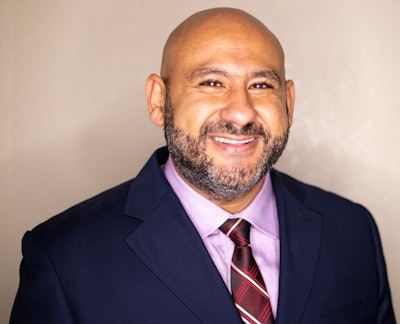 Dr. Tarek Aly, MBA.
Dr. Tarek Aly, MBA.
"When a dentist or dental entrepreneur is evaluating whether to privately fund or bring in external investors, I always suggest they start with defining their mission, vision, objective, goals, and strategy.
"If they want to grow quickly and receive profit distributions along the way, then partnering with external investors, such as a private equity company, might be a good choice. Making that decision is going to change how the dental group establishes the infrastructure of the company. If the external investor is associated with other dental groups, then it may be easier to obtain greater economies of scale and better savings too.
"If the dream is to retain majority control and build more slowly, then the dentist-owner may decide to privately fund. Typically, they'll have more flexibility with their capitalization table because they'll have more shares to offer minority equity partners."
Evan Barker, senior healthcare relationship manager at Old National Bank
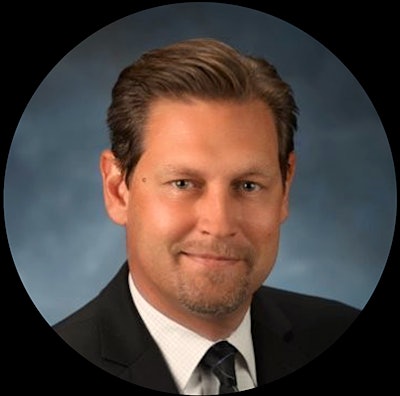 Evan Barker.
Evan Barker.
"I have 32 years of experience in lending to dental practice owners and more than 20 years specifically in the DSO segment. There are four areas I evaluate when a privately owned dental group is looking for capital to grow and expand:
- Character: What is the character of the owner(s)? Do they reinvest in their company, or do they live a lavish lifestyle? Do they have a vision, the supporting culture, and a definitive plan for moving from chairside to running the business full-time?
- Support team: Are they surrounding themselves with the right people and the right experience? Is there an organizational chart that defines roles and functions in the nonclinical operations, including financing, credentialing, marketing, revenue cycle management, and human resources?
- Legal structure: Is the company set up correctly? Is there a structure that the bank can lend to that clearly defines the clinical and nonclinical assets and the collateral?
- Accounting practices: I recommend dental groups switch from cash-based accounting to accrual-based accounting and consolidate the financial statements when they reach five practices. DSO lenders want to see trailing 12 months of consolidated income statements and balance sheets.
"When an owner can explain their vision, culture, organizational chart, financial statements, growth strategy, and exit strategy, it makes it easier for the credit team to approve the loan."
Josh Gwinn, co-founder and CEO of Optimize Practice Alliance
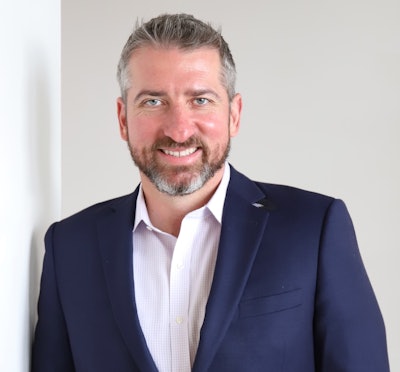 Josh Gwinn.
Josh Gwinn.
"If you're trying to grow without external advisers, the key question is why? With external investors, you can access capital faster, and there's a mandate for growth.
"Why you wouldn't want external investors is because you want to maintain control of your company's growth and the culture. When you are the majority owner, you call the shots.
"It's imperative to think through your processes so you can compete against other groups that have access to more capital and may have more sophisticated systems in place.
"For example, a DSO backed by private equity may have a well-defined career plan for dentists. New hires may spend two years as an associate, then two years as a lead dentist, then spend another year mentoring other doctors, and at year five, have the opportunity to buy into the DSO.
"To compete with that, privately owned practices need to have their own pathway to partnership that lays out the expectations, payment tiers, and financial growth plan. CEOs need to be able to articulate their core values, short-term goals, and long-term vision and show they can execute on what they promise."
Dr. Hisham Barakat, partner and chief clinical officer at Guardian Dentistry Partners
"When I talk with owners of groups looking to scale without external investors, I recommend they keep it simple. First, know your genius. Understand what you're good at and delegate the tasks that you don't enjoy doing.
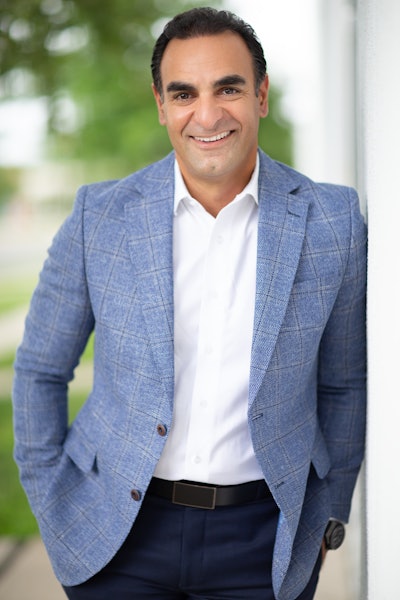 Dr. Hisham Barakat.
Dr. Hisham Barakat.
"Second, know your financials. What is your top-line goal, what are your expenses, what are your profit margins, and what is your EBITDA (expenses before interest, taxes, depreciation, and amortization)?
"There are many ways to improve your financials so your group is attractive to banks and future investors. One way is to realize you can hire fractional executives instead of full-time employees to help you as you're growing. Another way is to train your doctors on more complex procedures such as sedation, implants, and endodontics, so you can reduce the number of patients you refer out.
"By optimizing efficiencies, knowing your metrics, and leading with integrity, it's possible to scale your group without external investors."
Beth Gaddis is the editor in chief at Planet DDS, a dental technology company specializing in cloud-based practice management systems, digital imaging, and dental marketing services. Previously, Gaddis was the marketing director for two large dental service organizations. Prior to entering the dental industry, Gaddis was a journalist for 16 years in a variety of roles, including as a TV news producer at the CBS affiliate in Boston. You can connect with Gaddis on LinkedIn.
The comments and observations expressed herein do not necessarily reflect the opinions of DrBicuspid.com, nor should they be construed as an endorsement or admonishment of any particular idea, vendor, or organization.




